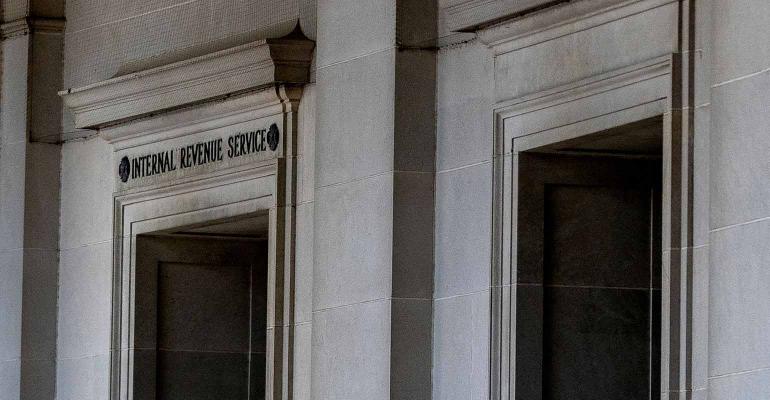When New York City real estate tycoon Sidney Kalikow died in 1990, he made sure to leave behind a will providing for the creation of a qualified terminable interest property (QTIP) trust for the benefit of his wife, Pearl Kalikow. Notwithstanding the documents in place, after Pearl’s death in 2006, a lengthy legal battle ensued over trust assets and income. Now, some 16 years later, the Internal Revenue Service is challenging the estate’s characterization of a $6.57 million settlement.
According to Tax Notes, the settlement payment was deductible by both the trust and Pearl’s estate, as were legal and accounting expenses associated with both the estate litigation and trust administration. The estate maintains that the settlement amount paid to it by a QTIP trust was deductible by the trust because the amount was ultimately transferred to Pearl’s foundation, the Sunshine Foundation. The estate further argues that the amount was deductible by it because Pearl’s will dictated that the remainder be passed to her private foundation.
Litigation History
According to Sidney’s will, the remaining property in the QTIP trust that was set up was to be distributed in equal shares to Sidney and Pearl’s children, Edward Kalikow and Laurie Platt, after Pearl’s death. The will directed that Pearl was to receive, at a minimum, quarterly distributions of income from the trust. The trust was funded with income from 10 apartment buildings in New York City. Through a series of transactions, the apartment buildings were subsequently transferred to a limited partnership, of which the trust held a 98.5% interest.
A dispute filed by Pearl’s estate claimed the trust owed it $16.9 million in undistributed income. After several years of litigation, the aforementioned settlement agreement of $6.57 million was reached.
IRS Argument
The estate argues that the trust could deduct the settlement under Internal Revenue Code Section 2055 because the amount was ultimately transferred to Pearl’s foundation in accordance with her will. The estate also made the argument that the settlement is deductible by the estate under IRC Section 2053 because it constituted a debt owed by the trust to the estate.
According to the IRS, however, the $6.57 million represented amounts that the limited partnership paid to third parties, and not the trust. The limited partnership deducted the payments as business expenses. Therefore, the $6.57 million can’t be deducted from the trust because it was never included in the trust, per the IRS.
The IRS also shot down the Section 2053 argument, finding that the trust’s payment of $6.57 million to the estate doesn’t qualify for a charitable deduction because it was Pearl who bequeathed the amount to her foundation, the IRS said. The service further argued that the $6.57 million can’t be deducted as an estate expense under Section 2053 because the payment represents income that should have been distributed before her death. It also noted that the section prohibits a deduction for a donation characterized as an expense, which would otherwise result in a double deduction.





